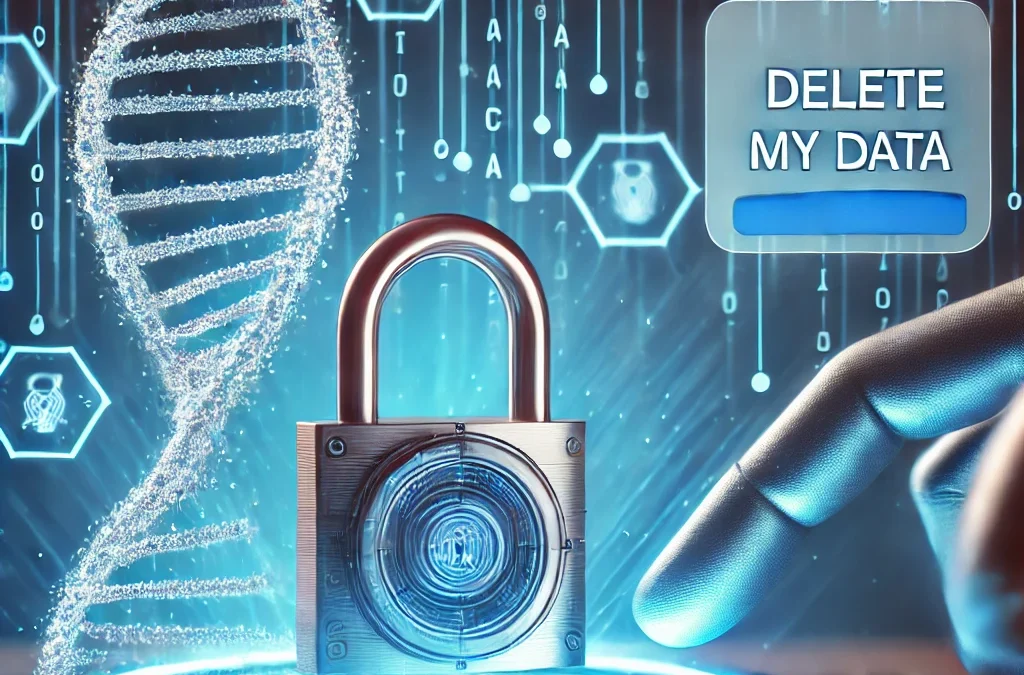By Cory Thompson – operating partner oil and gas business
Cory Thompson from Fruita on 23andMe’s Data Controversy: Should You Delete Your DNA?
Lately, Google Trends has been buzzing with a topic that hits close to home for many: personal data privacy. Specifically, 23andMe, the popular DNA testing service, has found itself in the spotlight once again, this time with California’s Attorney General urging users to request the deletion of their personal data from the company’s databases. As an operating partner in the Fruita and Grand Junction communities, I know how much people value their privacy, especially when it comes to something as deeply personal as their genetic information.
But what’s really going on here? And should you consider removing your data from 23andMe? Let’s dive in.
The Growing Concern Over Genetic Privacy
For years, 23andMe has provided people with incredible insights into their ancestry, health predispositions, and genetic connections to relatives they never knew existed. However, with great data comes great responsibility, and recent concerns about privacy and security breaches have some users rethinking their trust in the company.
California’s Attorney General recently made headlines by recommending that individuals request the deletion of their genetic data from 23andMe’s databases. This push follows a major data breach last year in which hackers accessed the personal information of millions of users, raising alarms about how this sensitive data is stored and used.
The question is no longer just “What does my DNA say about me?” but also “Who else has access to this information?”
Why This Matters to Everyday People
For many, DNA testing is a fun and exciting way to learn more about their family history. However, what most users don’t realize is that by submitting their DNA, they’re also handing over highly personal information to a private company.
This information could be used for:
- Marketing purposes – Imagine receiving targeted ads based on your genetic predispositions.
- Research partnerships – 23andMe has worked with pharmaceutical companies to develop new treatments, raising ethical concerns about whether users should be compensated.
- Potential insurance or employment risks – While genetic discrimination is illegal in many places, the idea that an insurance company or employer could access this information in the future is unsettling.
The Push to Delete Personal Data
California’s Attorney General is urging people to take control of their genetic data by requesting its deletion from 23andMe’s systems. The process, according to the company’s own policies, should be relatively straightforward—but it’s worth noting that while your profile may be deleted, any data that has already been shared with research partners might still be out there.
This movement isn’t just about 23andMe; it’s about raising awareness of how much control we have over our personal data and whether companies should be held more accountable for protecting it.
What Should You Do?
If you’ve ever used 23andMe (or any other DNA testing service), it might be time to ask yourself a few key questions:
- Do I trust this company to keep my data safe?
- Do I want my genetic information stored indefinitely?
- Am I comfortable with the possibility that my DNA could be shared with third parties?
If the answer to any of these questions makes you uneasy, it may be worth taking action. You can visit 23andMe’s website to request data deletion and explore additional steps to protect your privacy.
Final Thoughts from Fruita, CO
As someone who values community, trust, and transparency, I believe this conversation is bigger than just one company. Whether you’re in Fruita, Grand Junction, or anywhere else, the issue of data privacy is one that affects us all.
As technology advances, so do the ways companies collect and use our information. It’s up to us to stay informed, ask questions, and take control of our personal data. If nothing else, this latest 23andMe controversy serves as a reminder: just because something is convenient doesn’t mean it’s risk-free.
What are your thoughts? Would you delete your data from 23andMe? Let’s talk about it!

